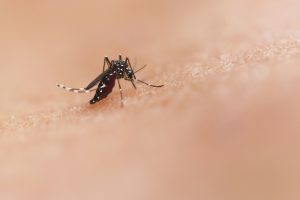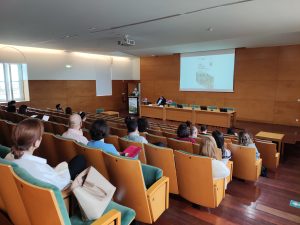Project framed in the "One Health" concept aims to promote the health and well-being of those who attend the complex of the two faculties.
The ICBAS (ICBAS) and the Faculdade de Farmácia da Universidade do Porto (FFUP) will develop a pioneering project which, based on biophilic principles and framed in the One Health, aims to promote the health and well-being of the academic community.
This is a project that goes through the incorporation of nature elements and their representations in the ICBAS/FFUP complex (indoor and outdoor spaces), with the aim of systemically influencing the health and well-being of its users.
For the director of ICBAS, Henrique Cyrne Carvalho, this project “is a way of materializing the One Health concept, but also of reinforcing our concern for the well-being of the entire community”.
“It is an ambitious project that, through biophilic design, will bring a new environment and new spaces to the ICBAS/FFUP complex, aiming at a better relationship between the community and our built space”, says Henrique Cyrne Carvalho.
Also Domingos Ferreira, director of FFUP, shares the holistic view of global health, and reinforces “the institutions’ commitment to the well-being of academic communities”. For the director of FFUP, “the project is not only ambitious, but also reinforces the position of the ICBAS/FFUP Complex as an innovative center in the promotion of health, well-being and integration with all areas of life sciences”.
What is Biophilia?
The “Biophilia Theory” argues that human beings are biologically programmed to relate to living systems and that this relationship with nature is instrumental for well-being and physical and mental health.
“With this project, we will assess the potential of biophilic design as an intervention tool in the academic space aimed at promoting health and well-being”, as Karine Silvaexplains, researcher at the Department of Behavioral Sciences at ICBAS and at ISPUP, and mentor of the scientific project.
“Based on the Theory of Biophilia, we will seek to create organic spaces in an arid landscape, which promote relaxation and psychological restoration, as well as stimulate creativity, coexistence and sharing”, he adds.
Using a participatory “photovoice”, the entire ICBAS/FFUP community will be invited to reflect on the concept of Biophilia and to contribute with suggestions for its implementation.
The collected suggestions will be subjected to a specialized and multidisciplinary analysis in the context of “focus groups”, and the resulting intervention will be evaluated regarding its impact in terms of a set of health and well-being parameters.
Karine Silva reinforces the relevance of this approach, in the post-pandemic context: “Recently, the COVID-19 pandemic strongly underlined the need to reconfigure the relationship between people and built spaces, thus reinforcing the potential of biophilic design”.
This activity is developed in partnership with the Student, Employability and Alumni Support Office. According to the coordinator of that office, Isabel Lourinho, the pandemic brought “a worsening of mental health in the university context”, which is why “it is urgent to promote mental health literacy and develop multidisciplinary activities in terms of prevention and promotion of well-being”.
This project, in addition to implementing the One Health concept, elevates the ICBAS/FFUP complex to an ambassador of biophilic design in the Portuguese academic context, promoting its recognition on the international stage as an active agent in the promotion of health and well-being.
Source: Notícias UP







